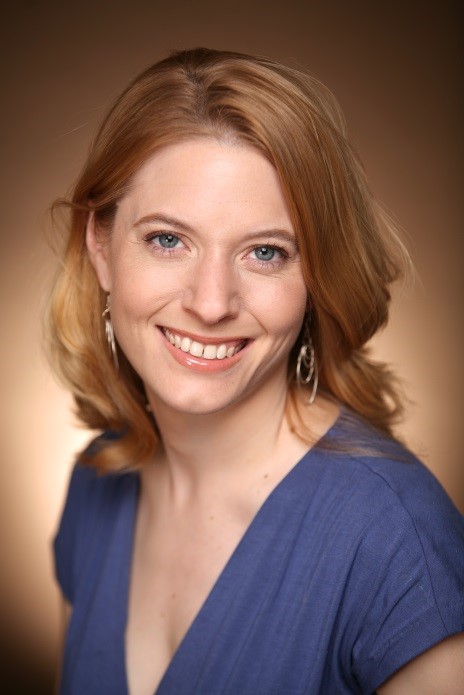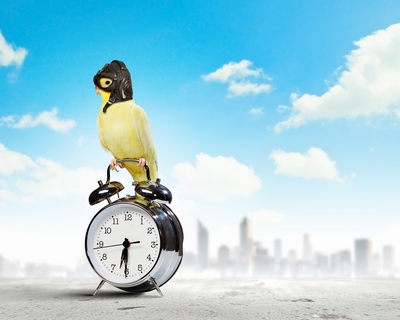How many of us end our work days wishing we could have been more productive, or that there was more time to get everything done? Let’s not count. Instead, let’s talk to Laura Vanderkam. Laura is a time management writer who has seen hundreds of people’s schedules over the years. Her books are filled with stories of successful professionals who have figured out how to make the very best use of their hours, days and weekends. We caught up with her to get some first-hand tips and insight. Read on—you may never hit snooze again.

LP: Many of us say, “I need to get more organized”—but we don’t do anything about it. What’s holding us back?
Laura: “Being more organized” isn’t a specific goal. That’s why it’s hard to succeed. A better question to ask is, “What do you need to be more organized about? What is the problem you’re facing and what would be a specific way to solve it?” Some better resolutions would be to keep your keys and cell phone in a certain place so you never have to hunt for them in the morning. You set a goal to prepare two meals on weekends so they’re ready to go during the week. You commit to setting aside time every Friday afternoon to plan the next week. Those are goals that set you up for success.
LP: What’s the first step you recommend to be more organized and productive?
Laura: If people want to use their time better, I tell them that the first step is figuring out how you use your time now. Keep track of how you’re spending your time, at least for a few days, but ideally for a week. Even the busiest people usually discover that they’ve got hours they’re not using as they wish. Once you know that, you can do things differently.
LP: What’s with the vicious cycle of never feeling like you’re getting enough done?
Laura: There are always more things we could be doing. The key to productivity is recognizing that you’ll never get everything done, but you certainly can get the most important things done. Then you may find out that everything else doesn’t matter that much! Set a limited number of priorities per day (like 3-6) and then celebrate getting all of them done. Progress is motivational. Better to aim low and succeed, than to aim too high, get discouraged, and not do some things that you really could do because you run out of steam.
LP: What are some popular productivity myths out there that you like to dispel?
Laura: Don’t waste time filing all your emails or getting down to Inbox Zero. Your inbox isn’t your job or your purpose in life. Figure out what that is, and focus on that, and deal with your inbox as it advances you toward your goals.
LP: What is one key productivity habit that is doable and makes the biggest difference in getting people motivated, organized and increasing their output in a fulfilling way?
Laura: Don’t hit snooze. Why start your day by fighting a battle with yourself? If you need more sleep in the morning, set your alarm at the time you intend to actually get up. Or go to bed earlier (you can hit “snooze” in a sense by going to bed on time instead of watching that extra TV show). Getting enough sleep has marvelous productivity benefits.
LP: Some of the people you interview are so admirable in their discipline and productivity that it’s easy to imagine someone responding with, “Oh, I could never!” Thoughts?
Laura: I aim to inspire people. The truth is that everyone, no matter who he or she is, has the exact same 24 hours per day and 168 hours per week as the rest of us. We have the same amount of time; we just choose to do different things with it. Making better choices can help us start to achieve small successes, and small successes eventually add up to bigger successes.
LP: You write “We have a tendency to fritter away our time as if infinite.” Why is this?
Laura: The human brain is, fortunately, capable of going through life without constantly thinking about mortality. It would be hard to function if we were constantly thinking about it! So in that sense, it’s good. But the problem is that time isn’t infinite. So we sometimes make choices that make sense if we had all the time in the world, but we don’t. We think, Oh, looking for a new job seems risky, so I’ll stay in one I don’t like. But that has a risk too—that you’ll never have the life you want.
LP: How do people stay on the path of practicing better habits without getting discouraged and quitting in the process?
Laura: When you first start a new habit, you need some sort of reward system to keep you on track. It can be an accountability group or partner, or a record-keeping system that you feel strongly about. But it’s also important to choose habits that you really do want to adopt. If you want to stick with anything long term, eventually you need intrinsic motivation to kick in. I run because I love how it feels. That is its own reward. I blog because I enjoy it. I’m trying to eat more vegetables, and key to that is figuring out ways to prepare them so they taste really good! Humans don’t do well with suffering long term.
LP: Are all the productivity apps out there a good thing, or can we sabotage ourselves by “apping” ourselves to death?
Laura: I don’t use any apps. I have my systems and they work for me, so there’s no reason to change just to change. But if people find programs helpful for keeping them on track or organized, there are lots of great apps out there. Just don’t become so obsessed with the app that you lose sight of the reason you have it. Are you living the life you want? Is the app helping you achieve that life? If not, it’s not worth it.
LP: Do creative types need a different organization process than, say, project managers or is that a myth?
Laura: I tend to think that creativity is a skill, not a type. Anyone who needs or wants to come up with new ideas needs an organization structure that supports that, and lots of practice coming up with lots of ideas and then figuring out which ones will work. People need systems that work for them, not some nebulous “type.”
LP: Can you convince the obsessive doers workaholics among us why taking time off makes us more productive?
Laura: Sometimes you have to step back from problems to solve them. You have to give your brain the chance to see new things and tie loose strings together. I am amazed how quickly the solution to a problem can pop into my brain when I go for a run. Likewise, taking a few days away from a manuscript can give me some distance from it, so I see how to make edits that I couldn’t when the writing was fresh. Breaks are productive.
LP: For the 9-5’ers: Should the computer stay off during the weekend, or not?
Laura: Up to you! I’d say it’s good to give yourself a 24-hour break, but weekends can give you some good time to prep for the week ahead and think a little differently when you’re out of the office. There’s nothing wrong with work. It’s part of life. Most of us do personal tasks during official “work” hours, so there’s nothing wrong with doing some work during “personal” time as well.
Laura Vanderkam is the author of What the Most Successful People Do Before Breakfast (Portfolio, 2013), and 168 Hours (Portfolio, 2010). She writes regularly for Fast Company, USA Today, and other publications, and lives outside Philadelphia with her husband and three children. You can catch up with her at www.lauravanderkam.com.








